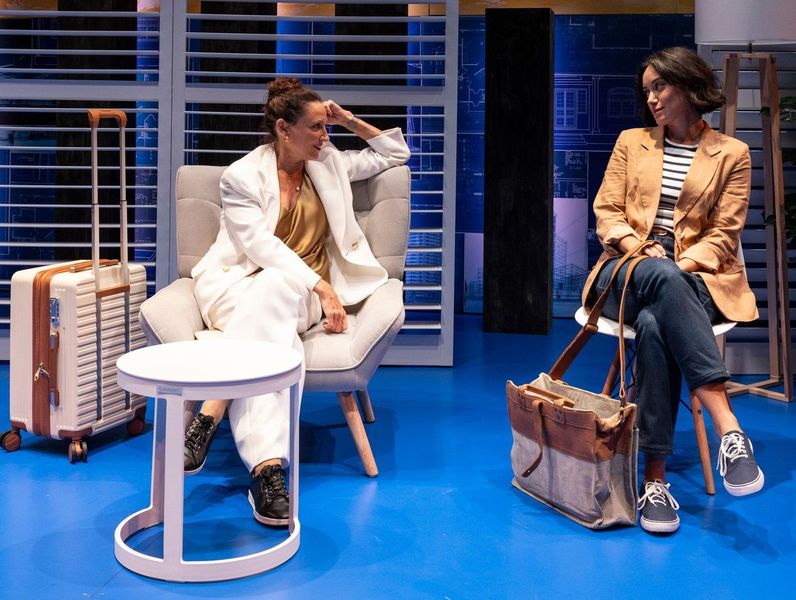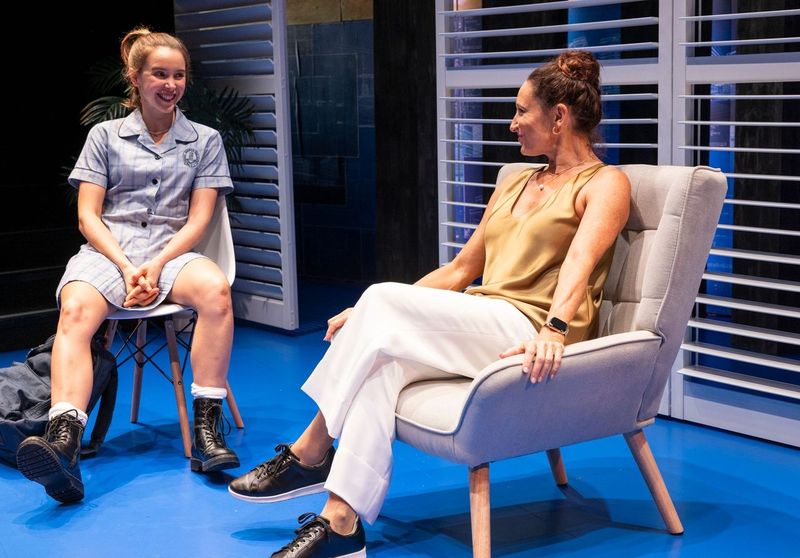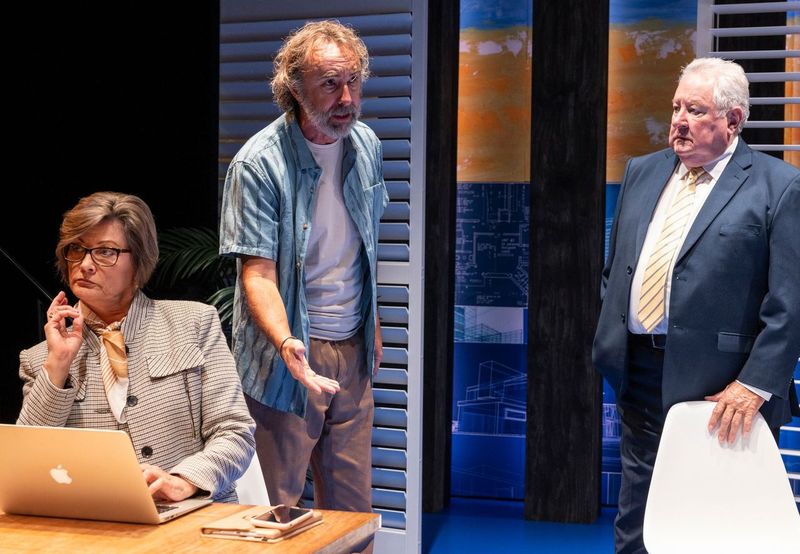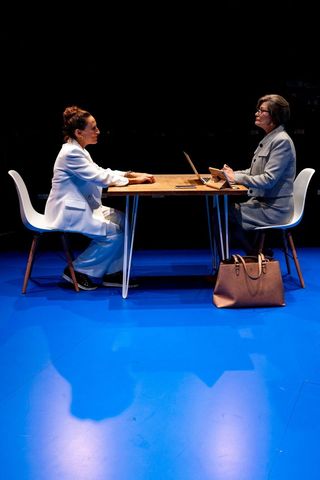By David Williamson. Ensemble Theatre, Sydney. Directed by Mark Kilmurry. 8 March – 27 April 2024
Reviewed : 16 March, 2024

David Williamson has seldom failed to react to flaws in the society – or the people who promote them. His reaction to the ever-widening gulf between the very affluent few and the and the struggling many has driven him out of retirement to comment on this “Great Divide”. The cost of living, house prices, property developers, greedy politicians all come under scrutiny in his new play, set in a sleepy town somewhere on the east coast.
The coast stretches across James Browne’s set in horizontal swathes of blue and yellow behind high vertical white shutters. The white and blue continue in a room that doubles as office and meeting room – and the beach in a gentle scene where the setting sun plays from the west over the shore (lighting Veronique Benett).

Pugnacious property magnate Alex Whittle (Georgie Parker) has plans to convert that peaceful shoreline to another gold Coast-style haven for the very rich – starting with an 18-hole golf course and resort. She has the local mayor Alan Bridger (John Wood) on side and they believe the Council is “sweet”. The plan seems ‘in the bag’ until single mother Penny Poulter (Emma Diaz) starts a petition on behalf of the local residents, most of whom are low-paid renters.
At first Whittle scoffs at such effrontery – but when fair-minded local newspaperman Brian (James Lugton) gives the petition column space, Whittle turns feral. She’ll do anything to get her way – “I always win!”– including establishing a Foundation and trying to win over Poulter’s rebellious surfer daughter Rachel (Caitlin Burley) with the offer of a scholarship to a Californian University … and setting her harassed assistant Grace (Kate Raison) to dig up some dirt on Penny.

These female characters are all more three dimensional than one expects of Williamson’s women. They are gutsy, direct, articulate. Their dialogue is strong and hard hitting. Even the much-beleaguered Grace is given spirit – which Raison develops beautifully throughout the play, always watching, astutely aware, inwardly seething, revengeful.

Georgie Parker makes Whittle cold and vicious. She is venomous in attack. Whether be-littling Bridger, haranguing Brian, deriding Penny or ridiculing Grace, she spits out her scorn in arrogant sluices. She strides around the stage; or stops, head high and sneering as Bridger splutters, or Grace recoils. There is no kindness in this character – even as she cajoles Rachel she is slyly condescending and demeaning. What a character for Parker to get her teeth into – and she bites hard!
In her own way Penny is just as tenacious. She’s had it tough. Pregnant before she finished uni, she has struggled in low paid jobs (she stacks shelves in a local supermarket) but she loves the laid-back life of this tiny, tight-knit town and she’s prepared to fight for it – and people who will be displaced if Whittle has her way. Diaz finds all of that in a tight performance where she balances loving but harried mother with determined plucky citizen. She faces Whittle’s rancour with calm resistance, Rachel’s defiance and accusation with hurt pain. The ‘dirt’ Whittle leaks to social media with tenacious grit.
Burley’s Rachel is bold, rebellious, hurtful. She is a fiery teenager, confident, ambitious – but gullible to Whittle’s scheming, and determined to defy her mother. She finds the barbs and offence in Williamson’s dialogue, shouting abuse at Penny, her anger and resentment clear in her taunting tone and taut control. But Rachel is also intelligent, perceptive and Burley shows that side of her just as clearly as the play proceeds.

John Wood blusters and bristles as the avaricious mayor grovelling at the at the expectation of pay off and a bit of fame. Lugton finds the dilemma of the small-town newspaper man, struggling to keep in business and retain integrity in the face of suggested wealth.
David Williamson’s newest play is not just “a string of one liners” from two dimensional characters satirising society. This play hits just a bit harder – and the women do all the hitting!